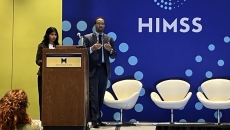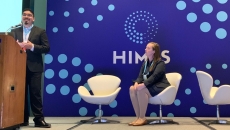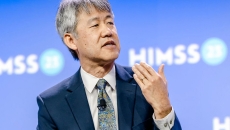HIMSS23
"There's tremendous potential for AI to be applied to behavioral health as in other areas of healthcare," says Taft Parsons III of CVS Health.
At a HIMSS23 talk, panelists discussed how technology may improve health equity if the right steps are taken during the development process.
Patients should be the focus, but developers need to consider the entire healthcare ecosystem too — including physicians and healthcare workers, said panelists at HIMSS23.
Mount Sinai Health System's Darryl Hollar and Cathleen Mathew discuss the importance of technology choice, clear communication and data reliability when implementing a remote patient monitoring program.
During a discussion at HIMSS23, panelists discussed the promise of AI while expressing concerns about its potentially unchecked evolution.
An El Paso-based health information exchange looked at how centralized data was of value to patient outcomes and improved provider stakeholder engagement and growth.
With artificial intelligence evolving at rapid speed, Dr. Sonya Makhni, medical director of Mayo Clinic Platform Solutions, discusses promising use cases, deployment challenges, algorithmic integrity, patient safety and more.
Integrating the cloud-based models into daily workflows will "increase productivity for many of our providers," says one CIO, "allowing them to focus on the clinical duties that truly require their attention."
At the HIMSS23 opening keynote discussion, artificial intelligence innovators debated about how to weigh the "tremendous opportunities" for healthcare algorithms with the "risks – some of which we may not yet know about."
From the impediments of artificial intelligence and its successes to its potential to save healthcare millions, "Where are we going to take it, and how do we drive value?" asked Tom Lawry at HIMSS23.









